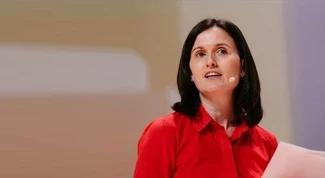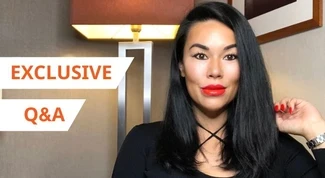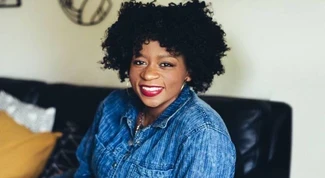Matt Dawson is a hugely influential rugby player who has enjoyed a successful career at the peak of high-performance sport. Playing for Northampton Saints and Wasps, touring with the British and Irish Lions, winning the Premiership title, and representing his nation, Matt has showcased adaptability and determination at every level of his sport.
Most notably, it was Matt that fed the ball to Jonny Wilkinson who scored the winning drop goal in the 2003 World Cup final. Just one of his many achievements, Matt’s ability to thrive under pressure sets him apart, both on and off the pitch.
In this exclusive interview, Matt reveals how he has coped with lockdown life. He talks about peak performance, overcoming adversity, and managing stress, sharing his experience in elite sport to aid success in the corporate world.
Q: Tell me about your position as online quiz master #dawsdoesquizzes
“Well, it started in the first lockdown when I was feeling fairly inadequate by not doing anything. There were people on the front line doing some serious work whilst I was sat on my backside not being able to do much.
“Initially I offered to just jump in on people's quizzes, and then I was getting invited to stag-dos, birthday parties, wedding celebrations, all sorts! I was just dropping into Zooms; I did hundreds of different calls. Just sort of popping in and saying hi, hosting some of the quizzes and awards dinners.
“People would email me, and I would just jump in sort of unannounced and give them a bit of a fright!”
Q: Why did you decide to do that?
“I wanted to do my bit. Everyone was chipping in because we were in uncharted waters back in March, April, May as we were in total lockdown.
“I just felt that there wasn't an awful lot I could do to reach people, so it was a way of interacting with people that I might have ordinarily seen at work or even just wandering down the street.
“At that point, I wasn’t seeing anybody, so it was good for my mental state to communicate with people. I also think people quite enjoyed the fact that they could be having their family quiz and all of a sudden Matt Dawson pops up and asks a few questions around sport or jumps in on their team to help them in their pop quiz.”
Q: What has kept you motivated during these unprecedented times?
“I think people would ordinarily think that someone like myself is absolutely fine, but it has been really tough. I've been through some personal issues as well and to live at home whilst you go through a divorce with two kids is mentally very, very tough. Thankfully, we all get on brilliantly well.
“I'm a very active person, I like to be out and about, and I'm not someone who sits on my backside too much. I like to see results, and I think that's probably the most frustrating part of all of this. Throughout my whole career, I got used to seeing the result relatively quickly and so not having that has been a little bit frustrating.
“But you've got to surround yourself with the right people away from work and at work, as they've helped me maintain my sanity.”
Q: How do you stay mentally fit?
“First and foremost, you have to accept where you are. If you're battling your current situation and you're battling against things that you have no control over, that can escalate pretty quickly.
“So early on, I made peace with lockdown, with divorce, with living with two kids, with not being able to exercise or see my friends - all those things that we're all going through now. We've all got our issues, from people losing jobs to furlough, those are the really tough parts of 2020/2021.
“I think the idea of acceptance is very important because if negativity is tapping on the window and threatening to get in your mind, that's when you tend to spiral a bit. So, I will always work on my acceptance.”
Q: How do you manage stress & anxiety?
“A lot has to do with how I eat, what I drink, and who I communicate with. I feel that I'm a lot more open than I used to be. I have friends that I can trust, and I will discuss things with them to get things out in the open.
“Food and drink are very important to me because they give me a fantastic buzz of enjoyment. Ordinarily, I would be going out to eat a lot, so I’ve been replicating that at home. I’ve been cooking with the family and still enjoying the experience behind food and drink.
“I also make sure that I'm exercising no matter how minimally, depending on the lockdown. I've found that even just going for a brisk walk or a light jog just stirs up those endorphins to kick off your day.
“I have had a few weeks where I’ll lounge around a little bit and the day drifts by. But that’s not good. You need to set targets but make them achievable goals - nothing fancy! But then when you do start ticking them off, it gives you those little wins which are so important.
“I don't try and bite off more than I can chew.”
Q: How important is it to reach out for help if you are struggling?
“Communication is an easy thing to say but not an easy thing to do. Not only have you got to have the desire and bravery to talk, but you've also got to choose the right person to tell because the wrong person can be detrimental.
“It’s important to have people around you that you can trust, but you should also test the waters with others as they might become someone you can trust and open up to. If someone asks how I'm doing, I might give them a slightly deeper answer than just ‘yeah, fine. Yeah, everything's good’.
“Rarely, if ever, have I opened up to someone and been really disappointed with their reaction. You might feel you didn't get too much back, but very rarely have I gone ‘oh my God, I'm never doing that again’. So, the step is to actually start the conversation.
“Say something other than, ‘yeah, everything's fine’ or ‘getting by’. Open up and see where that takes you.”
Q: What advice would you give to those who are struggling at the moment?
“I think it’s important to understand that you're not alone. We are all going through versions of the same thing, we're no different. Mental health is not particularly picky about who it decides to land with and that is most of us, and it has also been magnified.
“Communication is key, so find someone to talk to. It doesn't have to be a family member. It could be someone down the pub, at the gym, a neighbour, or just someone new that you happen to get on with. But being able to find common ground and start a conversation with someone is so important because you'll never know unless you take that step.
“I've been very, very fortunate, I’ve done a lot of amazing things in my life. But I've also struggled with my mental health. There have been numerous times I've sat on my sofa and thought, ‘I'm mentally struggling here. Is this a type of depression?’ And when I'm thinking like that, I will always take myself back to, ‘who should I talk to about that? What conversation do I need to have? Is it to do with my family? Is it to do with work? Is it to do with me and my attitude?’
“And then I'll talk to people to get it off my chest.”
Q: What specific physical & mental skills are necessary to thrive as a rugby player?
“I’ve had plenty of time to analyse myself now compared to when I played rugby, and what has really become apparent from the comparisons of my life now to back when I played rugby was my attitude towards being the small guy. In the world of rugby, it is full of giants, and I was by far the smallest guy on the team.
“This meant I had to plan, strategise, implement and deliver my mental skills, as well as my physical skills, in a world where everybody, in theory, was able to squash me physically. And so subconsciously from a very, very early age, I was always thinking innovatively and creatively so that I could use my skills in areas of the game where I was not comparable to others in terms of my size, speed, and strength. I was always thinking, ‘how can I use my other skills to complement what I've got, but also to better myself against the opposition?’
“Coaches would look at me and think, ‘actually, I'm not so worried about his size, strength or speed, because I know he can read the game brilliantly well. He can communicate to referees, he's really good under pressure and makes all the right decisions, and what he doesn't know, he wants to learn’. So those characteristics are really important when you play sport.”
Q: What other qualities do you possess that you believe led to your sporting success?
“I had an understanding of the game and an understanding of body language and the people around me.
“I was a very instinctive player, so I understood patterns of movement and was, therefore, able to work out where space was. It wouldn't always work, and I did make plenty of mistakes. But I always then learnt from them, so I never repeated them.
“I might throw a huge dummy and then get absolutely smashed by a huge guy, but subconsciously in my head when I'm in those scenarios, I’m like, ‘I'm not doing that again’.
“I wouldn't ever shy away from doing it, but it would be a different circumstance, so I would learn from the body language and think, ‘well, I got smashed when he was in this position, but he's not quite in that position, he’s in a slightly different, weaker position, so that might still work’. I had this visual library of body language I’d learnt through overcoming adversity and success that I would process in an instant. So, it's very important to learn from mistakes.
“I get a little bit frustrated when I see rugby games now because I see too much process and not enough intuition and instinct. This means that they’re not making the mistakes, and so when it comes to making decisions, they haven't got that experience in the back of their minds to draw on when they need it the most.
“I made some absolute howlers in my career from getting smashed in a tackle and getting substituted on the big stage in front of millions of people, but all of that was just knowledge for me. I just took it on as critique and added it to my bank of knowledge.”
Q: Why is teamwork important & what constitutes a successful team?
“You've got to have talented individuals within a team, but if they are purely working as individuals and they have an individual mindset, then you will be successful to a degree, but you're never going to knock it out of the park - you'll never be the best.
“Striking that balance of having individual talent, but all of those individuals understanding the goal is what creates success. You've got to have culture, dedication, communication, but fundamentally, whether it's a team of two or a team of 20, you've got to have a load of individuals who are committed to the agreed culture and characteristics of the team.”
Q: If you could give yourself one piece of advice at the start of your career, what would it be?
“I think there was quite a significant change in my rugby development when I stopped focussing on other people that were playing my position. Once I was at peace with that, and the fact I couldn't influence how my competitors played but could influence what I did, there was quite a significant shift for me.
“Ordinarily I would be looking at newspaper articles, thinking ‘how did they play? Did they score a try? Did they get a headline? Is the England coach going to pick him over me?’ And it wasn't until I realised that you know what, if he does well then good on him, it's out of my control so let's just focus on what Matt Dawson can do and do it to the best of my ability.
“I know that sounds really simple, but even now in the workplace, which is incredibly competitive, I think we often get far too worried about what our competitors are up to. We then change our path to somewhat accommodate to what they’re doing, rather than just focussing on what we can knock out the park.”
Book Matt Dawson
Contact the Champions Speakers agency to provisionally enquire about Matt Dawson or any of our other rugby speakers for your event. Simply call a booking agent on 0207 1010 553 or email us at [email protected] for more information.









